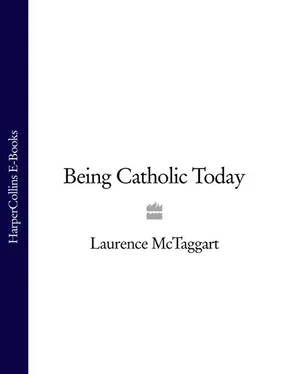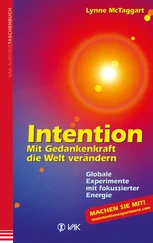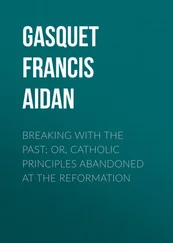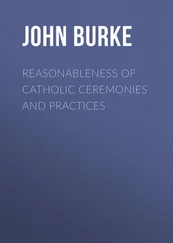That is an absurd overstatement, but you might know Catholics who would hold it. Nor is the position far off stating the fears of ‘conservatives’ who, after the Second Vatican Council, have seen so much bewildering change. One old priest told me that he thought John Paul II has done a fine job of teaching, that the task of the next Pope will be to enforce that teaching. ‘Enforce’ is a word of the ‘bad old days’ for some, and for others a hope of the future.
One hope I have for this book is that you as the reader will be able to see the rules and practices in context, and in proportion. If that sounds a bit too ‘liberal’ to you, then reflect that it is often easier to follow instructions when you know what they mean. So let’s start with a basic statement of what the Church is for, and from an impeccable source:
Christ…united himself with each person. The Church therefore sees its fundamental task in enabling that union to be brought about and renewed continually. The Church wishes to serve this single end: that each person may be able to find Christ, in order that Christ may walk with each person the path of life, with the power of the truth about humanity and the world that is contained in the mystery of the Incarnation and the Redemption and with the power of the love that is radiated by that truth.
John Paul II, Redemptor Hominis. 13
‘That Christ may walk with each person the path of life.’ Let’s take this, and this alone, as a starting point for reflection and, leaving issues and worries aside, see what God has to say to us in it. We might find that some problems begin to look different. But there is a condition for reading on. If you agree, then let’s go ahead.
Let go of what you know, especially if you are a conservative or a liberal who has all the answers. If, like the rest of us, you are merely confused or curious, take a risk. Come to God, the Father revealed in Christ, with hands empty of all but fears and loves. He will grant a context. There is absolutely no point examining God as though he is a laboratory specimen. If you wish to hear his word, you have to be prepared for the consequences. And, if you do not wish to be a Pharisee, let us begin as sinners.
PART 1 LAYING THE FOUNDATION
Let me hear your voice; for your voice is sweet and your face is beautiful.
Song of Songs 2:14
Not long ago, my father moved into a new house, a converted steading in a rather remote Scottish valley. On holiday, I helped him with some of the unpacking and decorating. The key task was to get the kitchen done, so that we could eat. In a very short time, surprisingly short, I learnt how to assemble kitchen units from flat packs. The next lesson was how to take them apart again. It was plain to me that these things were designed by warped minds, inventing devious ways of joining bits of chipboard together, and delighting in the failure of ordinary rational people to work out what had gone wrong when there were not enough bolts and screws.
Two corner units later, the truth dawned that all the bits were shaped and arranged so as to make things easy. What had looked like a confusing array of parts fell naturally into an intelligible whole if one simply followed the instructions provided. For example, the odd L-shaped bolts, far from being menacing, took away the need to make mortice joints in the wood. They meant that even I, with no experience or expertise, could assemble the units, given time, patience and a willingness to imitate the diagrams. It was a mistake even to put the pictures into words: ‘put all the L-shaped bolts into the 8mm round holes at the top and bottom corners of the inside faces of the …’ The description lost clarity, added confusion. You just made the bits and pieces look like the picture provided.
It is this easy to be a Christian, to resolve any issue of faith or of practice. The hard part is learning to do it the easy way. How often, for example, have you heard or read the following?
Come to me all you who labour and are overburdened, and I will give you rest. Shoulder my yoke and learn from me, for I am gentle and humble in heart, and you will find rest for your souls. Yes, my yoke is easy, and my burden is light.
Matthew 11:28
If we could do that, there would be no problems we could not face. The trouble is that we tend to flounder around with partial ideas, half concepts, fears and anxieties, like somebody trying to assemble a kitchen unit who does not know what the different parts are for. The claim of the Gospel is very straightforward. In Jesus Christ we have our diagram; if we can configure ourselves so as to look like him then, in any situation, life will get better. Or, if it does not get any better, it will make more sense: you will find rest for your souls.
Such is the promise of God in Jesus. You have to decide for yourself if it is true in your life, and why it is or why it might not be. The Gospel may well be false, a delusion. But if we are to reject it, we must be sure that it is the Gospel that we reject, and not something else. If we seek to live by it, we need to know that it is truly Christ to whom we are coming. This may seem obvious, but it is important to say it, because Catholicism is so massive, so complex, and thus so misunderstood. In this chapter, let’s keep things simple, and think a little about what it means to believe the Gospel.
One of the reasons English is such a rich language is that it is an amalgam of many other languages. This is especially true of so-called American English. From the fusion of Anglo-Saxon and Norman French at the turn of the first millennium we have a dual vocabulary for many things. A rich man is also wealthy; but if bereft, he is also desolate. It can cause problems, however. In talking about God, we want to talk about faith. That comes from the Romance or Latin side. But there is also the word belief. Can these be used interchangeably? In terms of grammar, no. We can say, ‘I believe in God,’ but not, ‘I faith God.’
This draws attention to a number of meanings of the word ‘belief’ that need to be watched. You know it is raining, are of the opinion that it will stop soon. Belief tends to be seen as halfway between the two. It is not certain, but nor is it merely opinion. Opinion is for things we cannot really prove, whereas belief is not relinquished so easily. Such was the treatment of faith by the medieval theologians, and it has largely stuck.
Sometimes, though, people ask of any given doctrine if they have to believe it to be Catholics. This can be an unhelpful way of seeing faith: essentially as holding a number of statements to be true. If you believe propositions a, b, c, and so on, then you will go to heaven. We will come back to some difficulties in chapter 12, ‘How to Disagree with the Pope’. For now, it is enough to point out that religion is not the same as a bunch of views about metaphysics and history, though these are involved in it. It is about God, about you, and about how those two relate in respect to others. This may turn out to be quite good news.
For a richer idea of what faith is about, let us look at a familiar Gospel story. Like many other stories, it is not as simple as it looks. But then, that’s life.
Jesus made the disciples get into the boat and go on ahead to the other side while he would send the crowds away. After sending the crowds away he went up into the hills by himself to pray. When evening came, he was there alone, while the boat, by now far out on the lake, was battling with a heavy sea, for there was a head-wind. In the fourth watch of the night he went towards them, walking on the lake, and when the disciples saw him walking on the lake they were terrified. ‘It is a ghost,’ they said, and cried out in fear. But at once Jesus called out to them, saying, ‘Courage! It is I! Do not be afraid.’ It was Peter who answered. ‘Lord,’ he said, ‘if it is you, tell me to come to you across the water.’ ‘Come,’ said Jesus. Then Peter got out of the boat and started walking towards Jesus across the water, but as soon as he felt the force of the wind, he took fright and began to sink. ‘Lord! Save me!’ he cried. Jesus put out his hand at once and touched him. ‘Man of little faith,’ he said, ‘why did you doubt?’ And as they got into the boat, the wind dropped. The men in the boat bowed down before him and said, ‘Truly, you are the Son of God.’
Читать дальше












